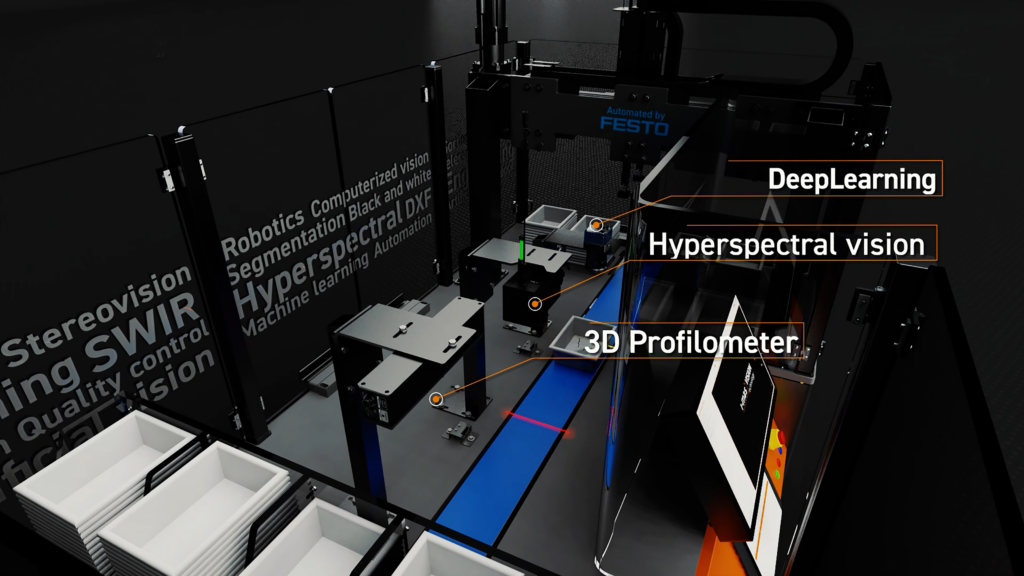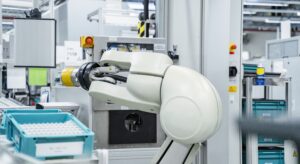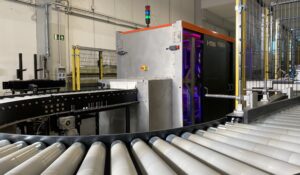Machine vision can be defined as a technology that enables automatic decision making from images. This technology is rapidly transforming the way factories and production plants operate around the world. As time progresses, this technology continues to evolve, offering new capabilities and innovative solutions to improve efficiency, accuracy and quality in manufacturing processes.
In this article, we will explore the emerging trends in machine vision that are paving the way for the future of industry: from the latest developments in artificial intelligence and machine learning to the most advanced applications in quality inspection and process automation.
Artificial Intelligence Integration
Artificial intelligence is revolutionizing machine vision by increasing the ability of systems to learn and adapt quickly and continuously. Thanks to AI, machine vision systems can process images with unprecedented accuracy and speed, detect complex patterns and make split-second decisions.
For these reasons, companies that adopt AI in their machine vision systems are able to develop innovative solutions that dynamically and quickly adjust to variations and changes in production processes. This major evolution makes it possible to anticipate quality and efficiency problems and even possible errors, adapting systems to respond proactively to changing conditions. In this way, the company manages to remain competitive in the market.
These advancements in deep learning have made artificial vision systems more intuitive and effective in recognizing complex patterns, resulting in more accurate detection of defects and anomalies, and a lower rate of false positives. This is essential in industries such as food production, where quality is a critical factor.
Finally, AI is also empowering machine vision systems with predictive analytics capabilities, which can identify potential machinery failures before they occur, which is critical for effective preventive maintenance. Predictive analytics anticipates equipment maintenance, reducing downtime and greatly increasing productivity. Data collected by vision systems is analyzed to predict when maintenance is needed before a failure occurs.
The importance of hyperspectral vision in food security
When it comes to the food industry, hyperspectral imaging systems have opened up new opportunities in industrial applications. These systems enable the detection of both external and internal food problems, as well as selecting and controlling the quality of the final product and ensuring that cans and containers are properly sealed. The ability to identify chemical composition allows for the effective detection of foreign bodies or contaminants that may appear in products.
The cameras used in hyperspectral systems generate images in real time, covering tens or even hundreds of wavelengths. These cameras provide more detailed information and more accurate data on food composition, ensuring that the final product reaches the consumer in the best condition.
Hyperspectral vision and sustainability
Sustainability has been a critical issue for all companies for years, but especially for those in the industrial sector, and machine vision systems have been no exception.
In the case of waste management, it is moving towards an increasingly digital and efficient process. Automated systems, driven by machine vision, are transforming treatment plants by improving the working conditions and health of employees by reducing their exposure to waste. They also increase the quality of recycled material.
The integration of intelligence and artificial vision, together with the analysis of environmental data, allows real-time decisions to be made to avoid or minimize risks.
In conclusion, we can say that hyperspectral vision systems allow complex automatic waste sorting operations to be carried out. On the other hand, hyperspectral vision contributes to the circular economy, as it allows more materials to be reused in the manufacture of new products, thus reducing dependence on virgin raw materials.
Artificial Vision at i-mas
In the engineering department of i-mas we are specialized in the combination of artificial vision technologies, deep learning and industrial automation in production processes, which allows us to offer integral solutions adapted to the specific needs of each client.
Want to learn more about our services? Contact us or visit our projects section!




